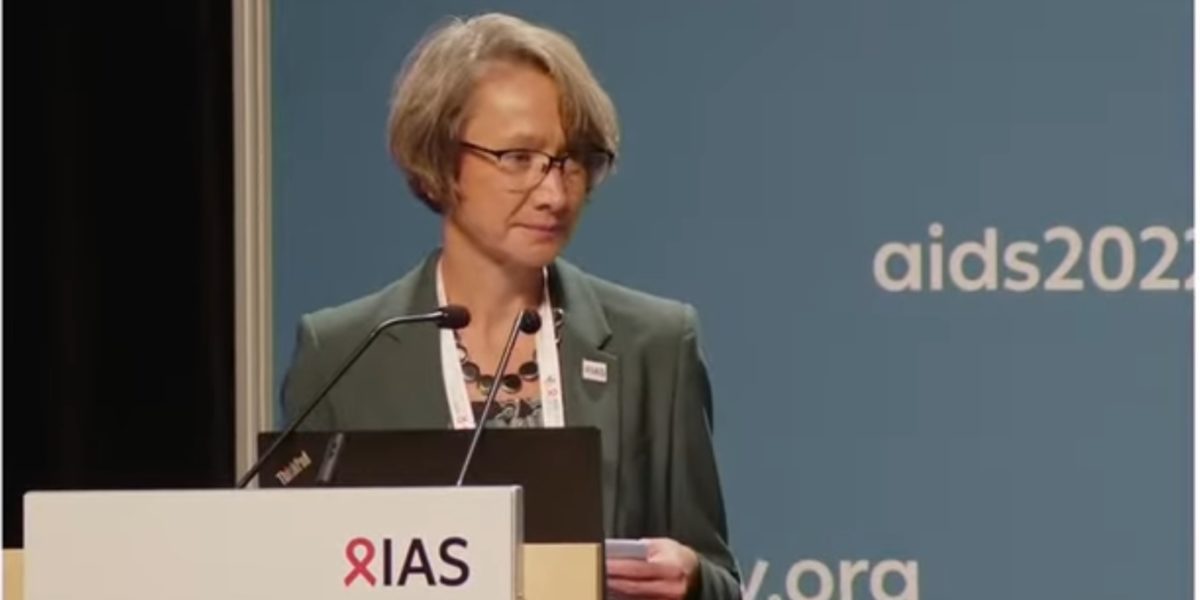Back in 2006, then-Prime Minister Stephen Harper came under fire for refusing to appear at an international conference on HIV/AIDS on Canadian soil.
But just 16 years later, as the globe battles outbreaks of monkeypox and a COVID-19 pandemic, it almost seemed like the AIDS conference had become an afterthought.
Prime Minister Justin Trudeau failed to attend this year’s conference in Montreal. Harjit Sajjan, the Minister of International Development, was scheduled to attend the conference, but his appearance was cancelled the day before the conference began and no representative attended in his place.
Sajjan announced on July 29 that the federal government would give an additional $15 million contribution to the multinational organization UNAIDS between 2023 and 2025 to help address the HIV/AIDS crisis on a global scale.
On Monday, Duclos announced the federal government would give a one-time funding boost of $17.9 million to the country’s HIV response—$8 million of which is set to fund self-HIV tests which typically cost $35 each.
Duclos says the other $10 million will go toward expanding community-based HIV testing in northern, remote, or isolated communities in Canada.
“Making tests more available by getting them directly to people helps break the barriers that too often prevent people from seeking testing, treatment, and care,” Duclos told reporters at an AIDS 2022 press conference.
While organizations like the Community Based Research Centre (CBRC) in Vancouver are glad to see the additional funds, the $18 million boost still falls short of the approximately $27 million needed to match calls from both a health coalition and a bipartisan recommendation made in 2003 and 2019 to allocate $100 million annually to the federal HIV response.
For CBRC executive director Jody Jollimore, the funding presents two problems; not only is it a one-time boost, but the funding is too vague to determine its efficacy.
“Having the Prime Minister open the conference would have signaled that Canada is serious about the HIV response,” Jollimore said, adding that many of his colleagues, friends, and fellow activists were “very upset” by Trudeau’s absence.
NDP calls out Liberals’ ‘lack of leadership’ on HIV response
According to the federal NDP, the Liberal government has displayed a “lack of leadership” when it comes to meeting HIV targets across the country.
In a statement issued Tuesday, NDP health critic Don Davies noted the funding boost by the Liberals still falls short of the $100 million the 18-organization health coalition campaigned for ahead of the conference. The additional funds are still below the 2003 and 2019 bipartisan recommendations for an annual federal allocation of $100 million to fight HIV/AIDS.
Davies warned that the number of HIV infections is growing worldwide. At the same time, access to treatment is slowing. Even starker, the Public Health Agency of Canada says that since 2018, nearly $125 million committed by the federal government to HIV/AIDS has not been spent.
Davies panned the government’s hundreds of visa denials that prevented both delegates and researchers from attending last week’s conference in Montreal, saying the decision “left out critical voices from countries most affected by HIV/AIDS from a vital conversation.”
“We cannot take a serious role in eliminating the spread of this disease without including the experts who are at the forefront of this fight,” Davies said in the release.
“Worse, Canada’s refusal to grant visas to many people from Africa has sent a message of race-based decision making that brings shame to our international reputation,” he added. “The absurd length of time taken by Canadian immigration authorities to make decisions for a conference called well in advance is incompetent at best, and disgraceful at worst.”
‘Activism is a legacy of the AIDS movement’
The biggest news out of the conference focused on the number of new HIV infections recorded around the world in 2021 — 1.5 million — exceeded the United Nations global targets by 500,000 people. Even starker, data shows that every two minutes, a young woman acquires HIV. Not only that, but one person dies of an AIDS-related illness every minute around the world.
Jollimore noted that a colleague, who was attending the conference for the first time, was impressed with how much activism took centre stage during the conference.
“Activism is a legacy of the AIDS movement,” he said. “It’s one of the health issues that is very political and has resulted in a lot of activism, and you see that that’s alive and well.”
The conference was not without controversy, after the Government of Canada denied hundreds of registered delegates set to attend the conference from entering Canada, presumably due to their HIV-positive status.
Organizers of the international AIDS conference responded by sending a letter to Trudeau expressing their disappointment in the government’s decision to prevent delegates from entering Canada.
“Excluding these delegates, who hail from the communities and countries most affected by HIV, is a blow to the global HIV community’s efforts to bring the HIV response back on track,” the letter reads.
When it comes to future international AIDS conferences, Jollimore suggests the organizers take a close look at the visa policies of the host country to make sure “everybody has the same expectations around who will be allowed at the conference.”
“If the host country can’t meet those expectations, then they shouldn’t be selected,” he added.
August 4, 2022 – Editor’s note: This article originally stated that “Minister of Health Jean-Yves Duclos did not announce his appearance until the fourth day of the conference, after days of concern from researchers, activists, and conference delegates that no representative of the federal government would attend the international event.” However this was untrue. Minister Duclos was scheduled to participate in the event since the start of the conference. That line has now been removed and the piece has been updated.



